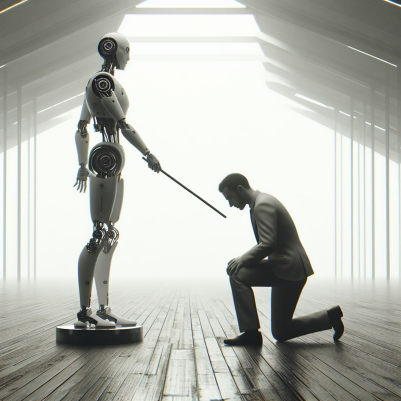Controversies surrounding “Would AI determine the human existence in the future?”--From the perspective of Science Fictions
Keywords:
Science Fictions; Human Existence; Controversy; Future ImaginationAbstract
Since the 20th century, Artificial Intelligence (AI) has been a prominent theme in Science Fiction (SF). Works like Frank Herbert’s Dune and Arthur C. Clarke’s 2001: A Space Odyssey portray AI as dystopian entities capable of autonomous harm to humans. In contrast, Isaac Asimov’s Galactic Empire and I, Robot present AI as benevolent allies, aiding humanity in exploration, development, and rescue. These contrasting perspectives form the foundation for envisioning future human-AI interactions. This paper explores these divergent views, examines their real-world implications, and investigates how modern AI advancements are shaping new trends in SF storytelling.
References
Araujo, T., Helberger, N., Kruikemeier, S., & De Vreese, C. H. (2020). In AI we trust? Perceptions about automated decision-making by artificial intelligence. AI & society, 35, 611-623.
Asimov I. The Naked Sun. 1st ed. Nanjing: Jiangsu Phoneix Literature and Art Publishing.LTD; 2013.
Asimov I. Galactic Empire. 1st ed. Nanjing: Jiangsu Phoneix Literature and Art Publishing.LTD; 2015.
Asimov I. I, Robot. 1st ed. Nanjing: Jiangsu Phoneix Literature and Art Publishing.LTD; 2013.
Bareis, J., & Katzenbach, C. (2022). Talking AI into being: The narratives and imaginaries of national AI strategies and their performative politics. Science, Technology, & Human Values, 47(5), 855-881.
Bo, D., Ma’rof, A. A., & Zaremohzzabieh, Z. (2025). The Influence of Negative Stereotypes in Science Fiction and Fantasy on Public Perceptions of Artificial Intelligence: A Systematic Review. Studies in Media and Communication, 13(1), 180-190.
Borden, M. (2024). Intentions, Interpretations, and the Paradoxes of Asimov’s Laws of Robotics. incite, 15, 59-67.
Baldassarre, M. T., Caivano, D., Fernandez Nieto, B., Gigante, D., & Ragone, A. (2023, September). The social impact of generative ai: An analysis on chatgpt. In Proceedings of the 2023 ACM Conference on Information Technology for Social Good (pp. 363-373).
Chattopadhyay, S. (2024).“I think, therefore I am”: Retro-futuristic Realities of the Developing AI and its Future in Science Fiction Narratives.Creativitas: Critical Explorations in Literary Studies,1(1),197-215.
Cave, S., & Dihal, K. (2019). Hopes and fears for intelligent machines in fiction and reality. Nature machine intelligence, 1(2), 74-78.
Cave, S., & Dihal, K. (2020). The whiteness of AI. Philosophy & Technology, 33(4), 685-703.
Clarke C A. 2001: A Space Odyssey. 1st ed. Shanghai: Shanghai Literature and Art Publishing.LTD; 2019.
Chubb, J., Reed, D., & Cowling, P. (2024). Expert views about missing AI narratives: is there an AI story crisis?. AI & society, 39(3), 1107-1126.
Chubb, J., Reed, D., & Cowling, P. (2024). Expert views about missing AI narratives: is there an AI story crisis?. AI & society, 39(3), 1107-1126.
Geraci, R. M. (2007). Robots and the sacred in science and science fiction: Theological implications of artificial intelligence. Zygon®, 42(4), 961-980.
Herbert F. Dune. 1st ed. Nanjing: Jiangsu Phoneix Literature and Art Publishing.LTD; 2017.
Hermann, I. (2023). Artificial intelligence in fiction: between narratives and metaphors. AI & society, 38(1), 319-329.
Hudson, A. D., Finn, E., & Wylie, R. (2023). What can science fiction tell us about the future of artificial intelligence policy?. AI & SOCIETY, 1-15.
Hohendanner, M., Ullstein, C., Buchmeier, Y., & Grossklags, J. (2023, September). Exploring the Reflective Space of AI Narratives Through Speculative Design in Japan and Germany. In Proceedings of the 2023 ACM Conference on Information Technology for Social Good (pp. 351-362).
Jenner, S., Raidos, D., Anderson, E., Fleetwood, S., Ainsworth, B., Fox, K., ... & Barker, M. (2025). Using large language models for narrative analysis: a novel application of generative AI. Methods in Psychology, 12, 1-12.
Kinzler, R. (2023). AI REVOLUTION: FROM SCIENCE FICTION TO REALITY.
Mubin, O., Wadibhasme, K., Jordan, P., & Obaid, M. (2019). Reflecting on the presence of science fiction robots in computing literature. ACM Transactions on Human-Robot Interaction (THRI), 8(1), 1-25.
McCauley, L. (2007, November). The frankenstein complex and Asimov’s three laws. In Association for the Advancement of Artificial Intelligence: https://www. aaai. org/Papers/Workshops/2007/WS-07-07/WS07-07-003. pdf,(accessed 27/07/18).
Murphy, R. R. (2022). The original “I, Robot” featured a murderous robot and the Frankenstein complex. Science robotics, 7(71), 1-2.
Natale, S., & Ballatore, A. (2020). Imagining the thinking machine: Technological myths and the rise of artificial intelligence. Convergence, 26(1), 3-18.
Osawa, H., Miyamoto, D., Hase, S., Saijo, R., Fukuchi, K., & Miyake, Y. (2022). Visions of Artificial Intelligence and Robots in Science Fiction: a computational analysis. International Journal of Social Robotics, 14(10), 2123-2133.
Raj, A., Stroup, W. M., & Kayumova, S. (2025). Stories, Printing Press, Internet, and now ChatGPT: Examined via the SMART Framework. In Proceedings of the 18th International Conference on Computer-Supported Collaborative Learning-CSCL 2025, pp. 445-449. International Society of the Learning Sciences.
Storey, V. C., Yue, W. T., Zhao, J. L., & Lukyanenko, R. (2025). Generative artificial intelligence: Evolving technology, growing societal impact, and opportunities for information systems research. Information Systems Frontiers, 1-22.
Taeihagh, A. (2025). Governance of generative AI. Policy and society, 44(1), 1-22.
Watts, T. F., & Bode, I. (2024). Machine guardians: The Terminator, AI narratives and US regulatory discourse on lethal autonomous weapons systems. Cooperation and Conflict, 59(1), 107-128.
Primož K. The World of “Dune” as an Alternate Future Without AI. In:Ivan Matić, editors. Edited Book from the International Scientific Conference, Belgrade: Film and Politics; 2024, p. 13–32.


